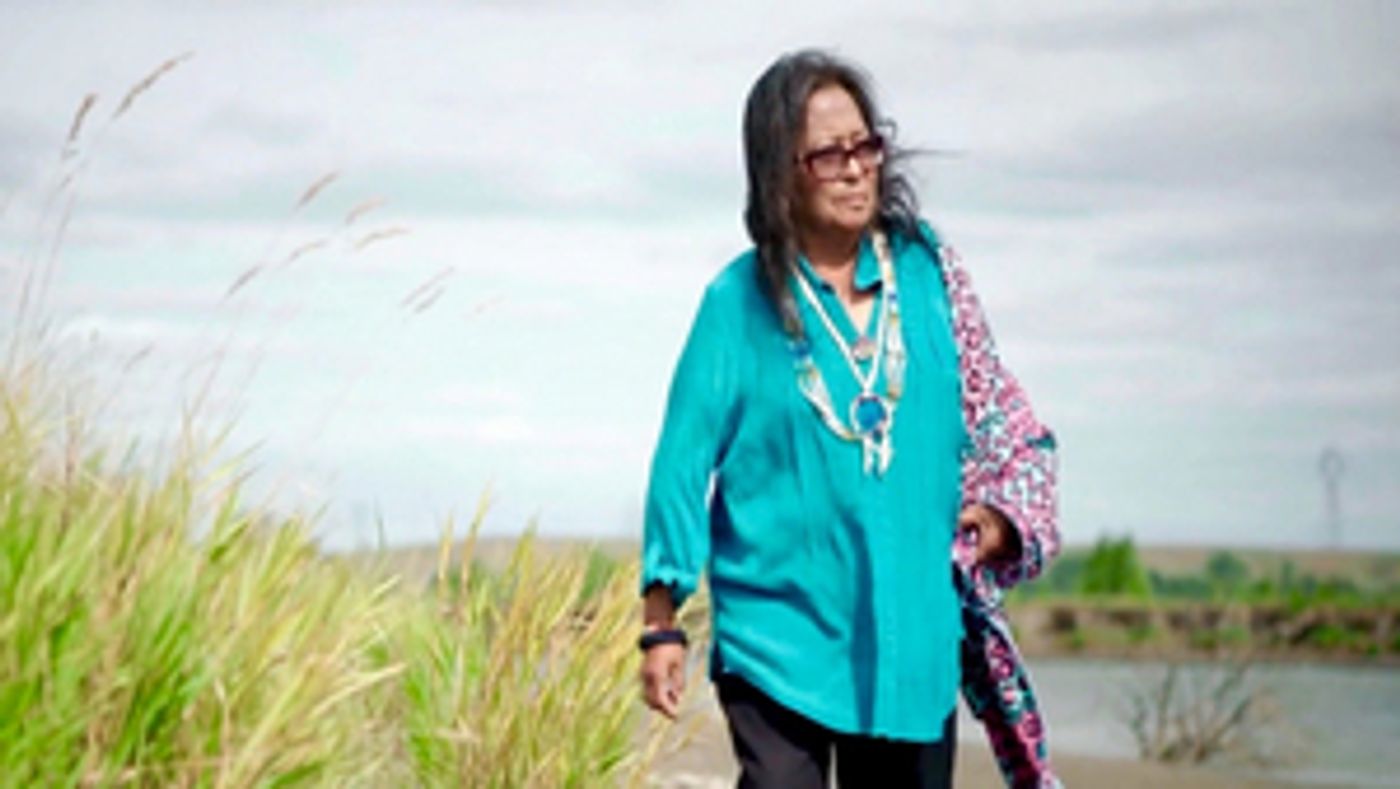Review: Sedona International Film Festival Features END OF THE LINE: THE WOMEN OF STANDING ROCK
END OF THE LINE is one of the featured screenings at this year’s Sedona International Film Festival (June 12th-20th).

Should it be too much to ask that drinking water be clean and available for future generations of children? Or that the culture and practices of a people be respected and revered by others?
These are seemingly simple inquiries that should elicit only the most obvious of answers. Yet, for indigenous peoples, the Golden Rule on matters of this magnitude are violated all too often.
Case in point: The construction of the Dakota Access Pipeline (DAPL) by Energy Transfer Partners.
In a compelling and consciousness- (and conscience-) raising documentary, Emmy-winning film maker Shannon Kring chronicles the courage and years-long ordeal and unwavering determination of the women of the Standing Rock Sioux Reservation to protest the pipeline.
A bit of background is in order here:
The purpose of DAPL, a project of Energy Transfer Partners, is to transport light sweet crude oil.
The original plan for the 1172-mile underground 30" pipeline was to cross the Missouri River north of urban Bismarck, North Dakota.
However, plans changed and DAPL was rerouted ~ to extend from the Bakken/Three Forks production field in North Dakota to Pakota, Illinois, crossing under the Missouri and Mississippi Rivers and Lake Oahe within a half-mile of the Standing Rock Sioux Reservation and through land taken by Congress from the tribe in 1958.
It is along the extended western shoreline of Lake Oahe where the people of both the Standing Rock Indian Reservation and Cheyenne River Indian Reservation reside and where various artifacts, cultural resources, and two possible burial sites of Sitting Bull are located ~ all with unique importance to Native American tribes.
In July 2016, following a request by the Environmental Protection Agency, the Department of the Interior, and the Advisory Council on Historic Preservation, the Army Corps of Engineers, based on what has been considered less than a "full" environmental review, approved the federal easements for the pipeline.
Concerns regarding environmental racism, the potential of water contamination, and the fear of desecration of cultural sites animated a grassroots movement that gained momentum and international attention and became known as the Dakota Access Pipeline protests (#NoDAPL).
It is the experience of the protesters that Kring records ~ empowering the women of valor, the leaders of the movement, to share their stories in their own words and with their own emotions about their personal lives, values, and challenges.
Director of photography, Marc Gerke, captures the intensity of the unfolding drama from all the critically important angles: The meticulous creation and maintenance of the water protectors' encampment, which served as the command and soul center for the resistance and the defense of indigenous sovereignty. The fierce and punishing militarized responses to quell the protests. The internal lives of the protesters and their families in their modest abodes as they relate the emotional tales of their hopes and their travails.
The camera follows the protesters as they dauntlessly carry their message to the streets of power in Washington, D.C. and to the United Nations where they find common cause at the Permanent Forum on Indigenous Issues with shared interests from around the world.
At the time of the film's completion, the women of Standing Rock continue their opposition to the pipeline, broadening their scope to join an international campaign for fossil fuel disinvestment.
As of today and since the summer of 2017, despite continued protests and legal challenges, APL has been operational. With a new President in the White House, the calls to shutter the pipeline have increased.
Time will tell the outcome of this struggle, but what producer/director Kring has revealed is that the spirit and voices of these women will not be stilled.
Special shoutouts to:
- Neil Kring's captivating music
- the mesmerizing intonations of Tokata Iron Eyes
- Brad Cornelius's amazing and creative title and graphic design
END OF THE LINE is one of the featured screenings at this year's Sedona International Film Festival (June 12th-20th).
Photo credit to Red Queen Media: Of Phyllis Young, Hunkpapa Lakota
Sedona International Film Festival ~ https://sedonafilmfestival.com/ ~ 928-282-1177 ~ 2030 W. State Route 89A, Suite A-3, Sedona, AZ
Reader Reviews
Videos

